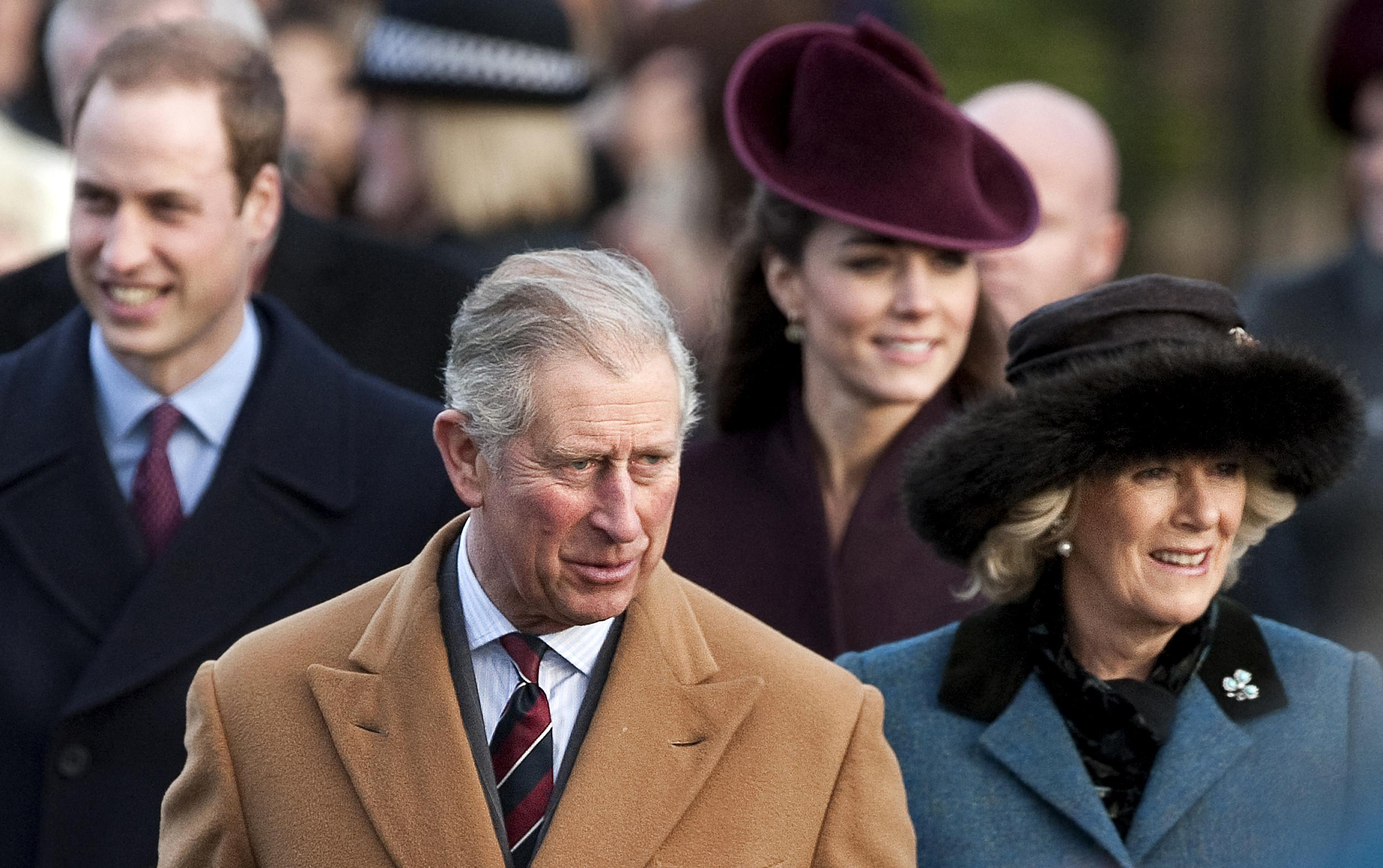Worrying news about the state of health of members of the British royal family continues. An hour apart, this Wednesday, January 17, Kensington Palace announced that the Princess of Wales had been hospitalized on Tuesday, then Buckingham Palace informed that King Charles III was going to be hospitalized next week.
Kate Middleton underwent “scheduled” abdominal surgery at the London Clinic on Tuesday. No indication was provided on the reasons for this hospitalization but, according to several British media, Kate does not suffer from cancer. However, the BBC is concerned about her condition, which is said to be “serious enough to keep her in hospital for up to two weeks.” Kensington Palace has also indicated that the Princess of Wales will not return to her royal duties before Easter. “It is clear from the length of time Catherine is expected to remain in hospital and the tone of the statement issued by the Palace that her state of health is serious,” continues the British media.
King Charles III must be hospitalized next week due to a “benign” enlarged prostate, Buckingham Palace said. “Like thousands of men each year (...) what His Majesty suffers from is benign. He will go to the hospital next week for a corrective procedure,” it is stated in the brief press release. “The king's public engagements will be postponed for a short recovery period,” the text continues.
Faced with these two concomitant royal absences, a question arises: who will ensure their public commitments while waiting for them to resume their functions? Le Figaro takes stock of the functioning of the British monarchy in this case.
“When the king is prevented and cannot exercise his functions, it is the heir, William, who must assume the functions on an interim basis, without any legal consequences on his status,” explains Marc Roche, royal biographer and author of the book The Borgias at Buckingham. However, after the announcement of the princess's hospitalization, the Prince of Wales also indicated that he was postponing "a certain number of his commitments to take care of his three children", informs the Guardian. “It is understood that he will not undertake official duties while his wife is in hospital or immediately after her return home,” the newspaper said.
However, in the event of an emergency, “William has enough nanny to replace him with his children,” explains Marc Roche. Especially since according to the biographer, King Charles III is not in a situation of total incapacity to exercise his functions, because “he remains conscious”.
What about Kate Middleton's commitments that she won't be able to fulfill between now and Easter? “The Princess of Wales has no other role than that of being princess and wife of the Prince of Wales,” notes Marc Roche.
As for Charles III, he is in charge of “the armies, the Anglican Church and the philanthropic movement,” recalls the specialist. The British sovereign also meets the Prime Minister once a week. If he becomes ill, adaptations can be made. “The tête-à-tête with the Prime Minister can be done remotely or can simply be postponed,” explains Marc Roche.
Philanthropic functions are nevertheless considered "the true pillar of royal power and essential in the daily lives of the British." If the king is unable to ensure such a commitment, it is the “working royals” who take over. And they can take on this role for any sick family member, including Kate. These are senior members of the crown who carry out official duties and commitments on behalf of the royal family. We then speak of “Princess Anne, the Duke of Edinburgh, Edward, and his wife Sophie. But also, when necessary, other minor members such as the Duke of Gloucester or Kent,” explains the biographer.
“There is never a power vacuum” under the British monarchy, also points out Marc Roche. It is also very rare for the king to be “permanently incapacitated” to exercise his functions. But if such a situation occurs, the monarchy is well prepared. In this case, “Parliament would vote for the establishment of a regency,” explains Marc Roche. “This regency is then ensured by the Prince of Wales, as number two in the list of succession. If he too is unable, it would be up to George, his son, to ensure the regency.”
It is also important to remember that behind the scenes, “the real royal power is not exercised by the king, but by his private secretary,” underlines Marc Roche.

 Israel-Hamas war: Gaza between hope of truce and fear of Israeli offensive in the South
Israel-Hamas war: Gaza between hope of truce and fear of Israeli offensive in the South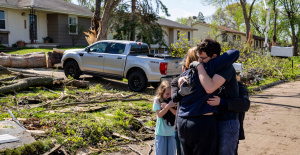 “Mom, Dad, please don’t die”: in the United States, a nine-year-old child saves the lives of his parents injured in a tornado
“Mom, Dad, please don’t die”: in the United States, a nine-year-old child saves the lives of his parents injured in a tornado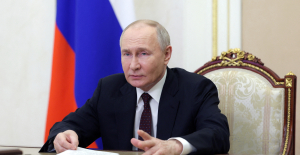 War in Ukraine: Putin orders nuclear exercises in response to Macron and “Western leaders”
War in Ukraine: Putin orders nuclear exercises in response to Macron and “Western leaders” Mexico: the last moments of surfers found in a well, killed with a bullet to the head
Mexico: the last moments of surfers found in a well, killed with a bullet to the head A baby whose mother smoked during pregnancy will age more quickly
A baby whose mother smoked during pregnancy will age more quickly The euro zone economy grows in April at its best pace in almost a year but inflationary pressure increases
The euro zone economy grows in April at its best pace in almost a year but inflationary pressure increases Children born thanks to PMA do not have more cancers than others
Children born thanks to PMA do not have more cancers than others Breast cancer: less than one in two French women follow screening recommendations
Breast cancer: less than one in two French women follow screening recommendations “A potential environmental disaster”: Paris town hall opposes an oil drilling project in Seine-et-Marne
“A potential environmental disaster”: Paris town hall opposes an oil drilling project in Seine-et-Marne The governor of the Banque de France pleads for the development of French and European AI
The governor of the Banque de France pleads for the development of French and European AI Clariane (ex-Korian) announces a sale of its home hospitalization activities
Clariane (ex-Korian) announces a sale of its home hospitalization activities To everyone's surprise, the Hades 2 event video game is released in early access
To everyone's surprise, the Hades 2 event video game is released in early access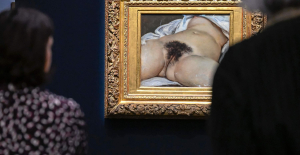 The Origin of the World, exhibited at the Center Pompidou Metz, target of an “artistic performance”
The Origin of the World, exhibited at the Center Pompidou Metz, target of an “artistic performance”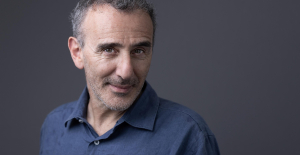 Threatened with death for having insulted the mobilized pro-Palestinian students, Élie Semoun files a complaint
Threatened with death for having insulted the mobilized pro-Palestinian students, Élie Semoun files a complaint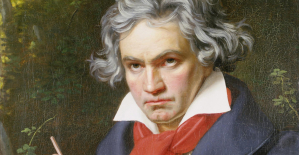 Vienna, Paris, Milan celebrate the 200th anniversary of Beethoven's 9th Symphony
Vienna, Paris, Milan celebrate the 200th anniversary of Beethoven's 9th Symphony Cannes Film Festival: call for strike one week before opening
Cannes Film Festival: call for strike one week before opening Omoda 7, another Chinese car that could be manufactured in Spain
Omoda 7, another Chinese car that could be manufactured in Spain BYD chooses CA Auto Bank as financial partner in Spain
BYD chooses CA Auto Bank as financial partner in Spain Tesla and Baidu sign key agreement to boost development of autonomous driving
Tesla and Baidu sign key agreement to boost development of autonomous driving Skoda Kodiaq 2024: a 'beast' plug-in hybrid SUV
Skoda Kodiaq 2024: a 'beast' plug-in hybrid SUV The home mortgage firm rises 3.8% in February and the average interest moderates to 3.33%
The home mortgage firm rises 3.8% in February and the average interest moderates to 3.33% This is how housing prices have changed in Spain in the last decade
This is how housing prices have changed in Spain in the last decade The home mortgage firm drops 10% in January and interest soars to 3.46%
The home mortgage firm drops 10% in January and interest soars to 3.46% The jewel of the Rocío de Nagüeles urbanization: a dream villa in Marbella
The jewel of the Rocío de Nagüeles urbanization: a dream villa in Marbella Europeans: David Lisnard expresses his “essential and vital” support for François-Xavier Bellamy
Europeans: David Lisnard expresses his “essential and vital” support for François-Xavier Bellamy Facing Jordan Bardella, the popularity match turns to Gabriel Attal’s advantage
Facing Jordan Bardella, the popularity match turns to Gabriel Attal’s advantage Europeans: a senior official on the National Rally list
Europeans: a senior official on the National Rally list Blockade of Sciences Po: the right denounces a “drift”, the government charges the rebels
Blockade of Sciences Po: the right denounces a “drift”, the government charges the rebels These French cities that will boycott the World Cup in Qatar
These French cities that will boycott the World Cup in Qatar Foot: Italian football protests against a government project which aims to monitor club finances
Foot: Italian football protests against a government project which aims to monitor club finances Champions League: “We are ready for anything,” warns Edin Terzic before PSG-Dortmund
Champions League: “We are ready for anything,” warns Edin Terzic before PSG-Dortmund Premier League: David Moyes to leave West Ham at end of season
Premier League: David Moyes to leave West Ham at end of season Transat CIC: Yoann Richomme winner in the wake of Tabarly, Poupon, Peyron, Desjoyeaux...
Transat CIC: Yoann Richomme winner in the wake of Tabarly, Poupon, Peyron, Desjoyeaux...